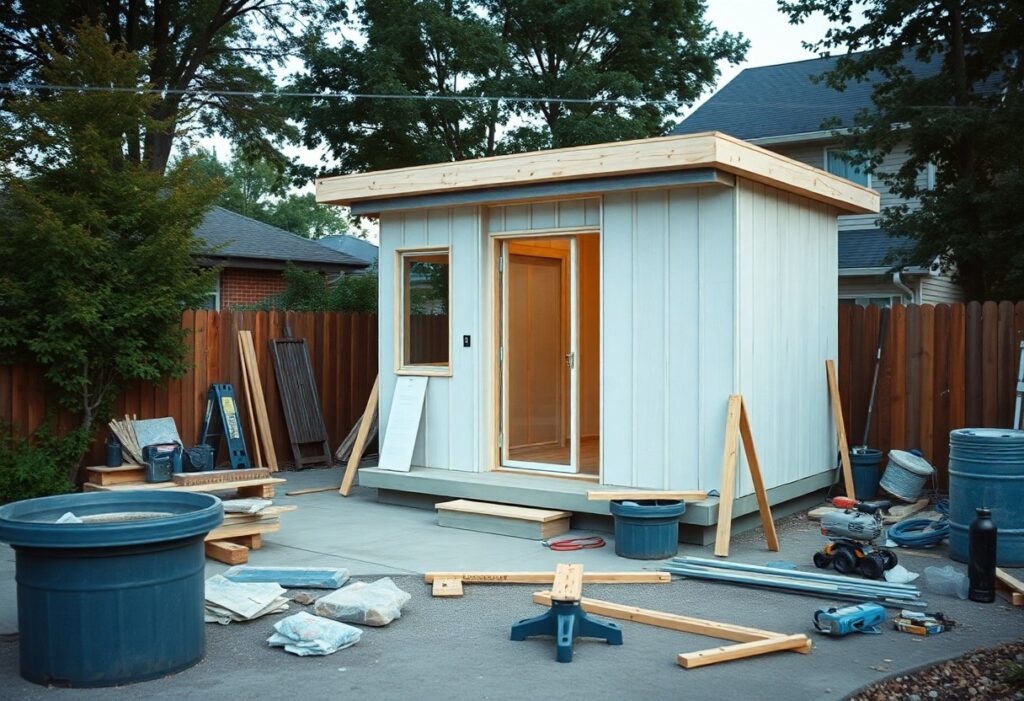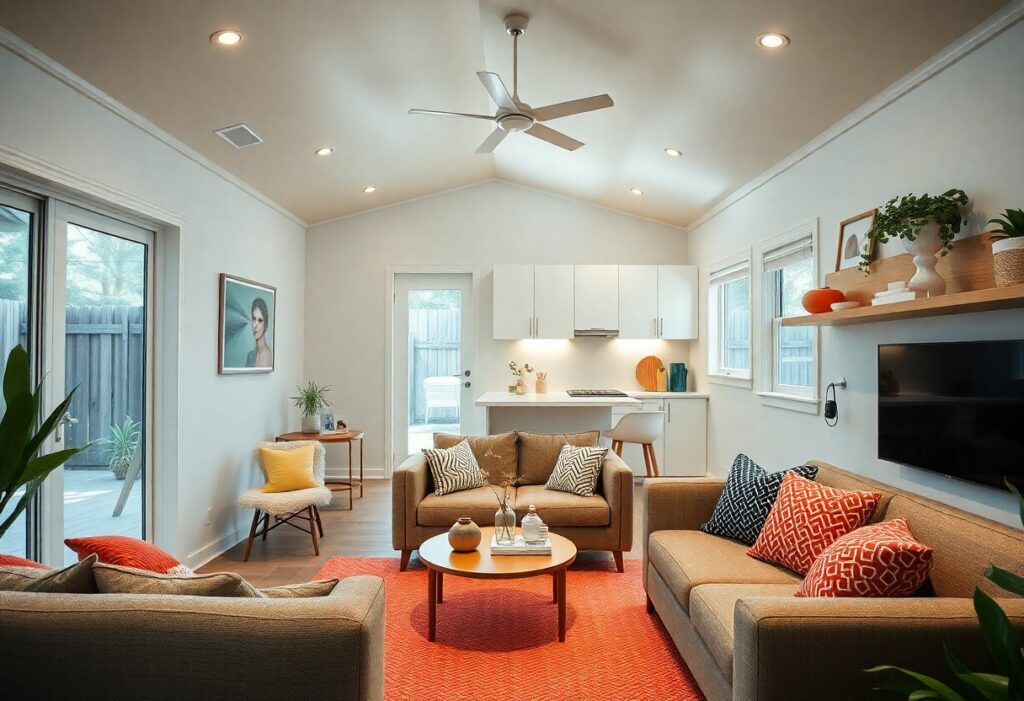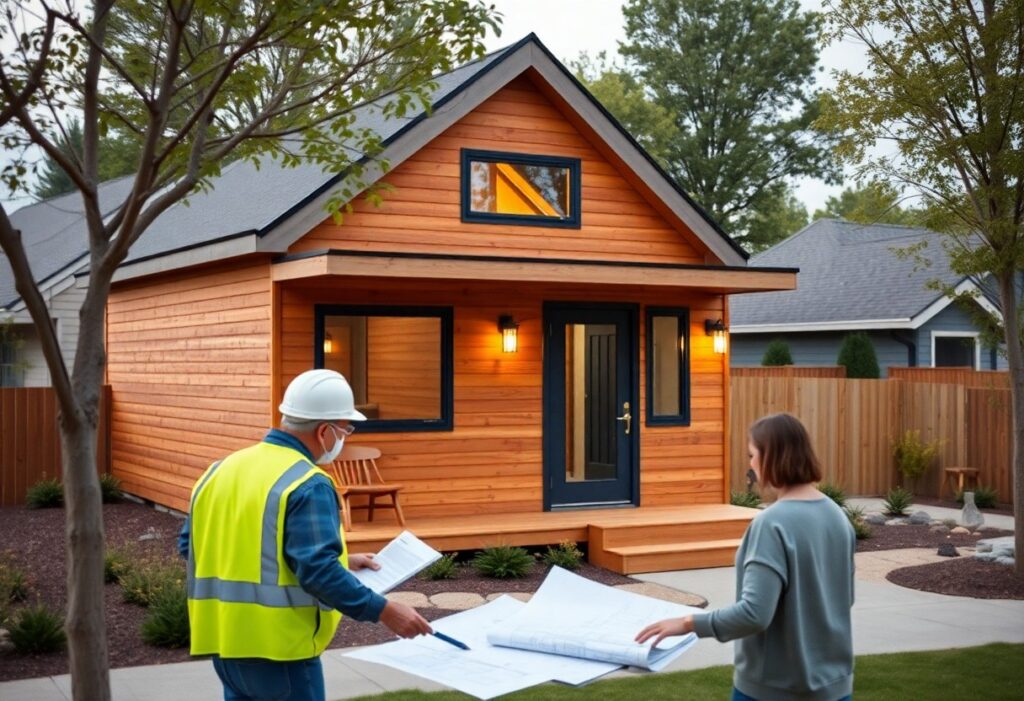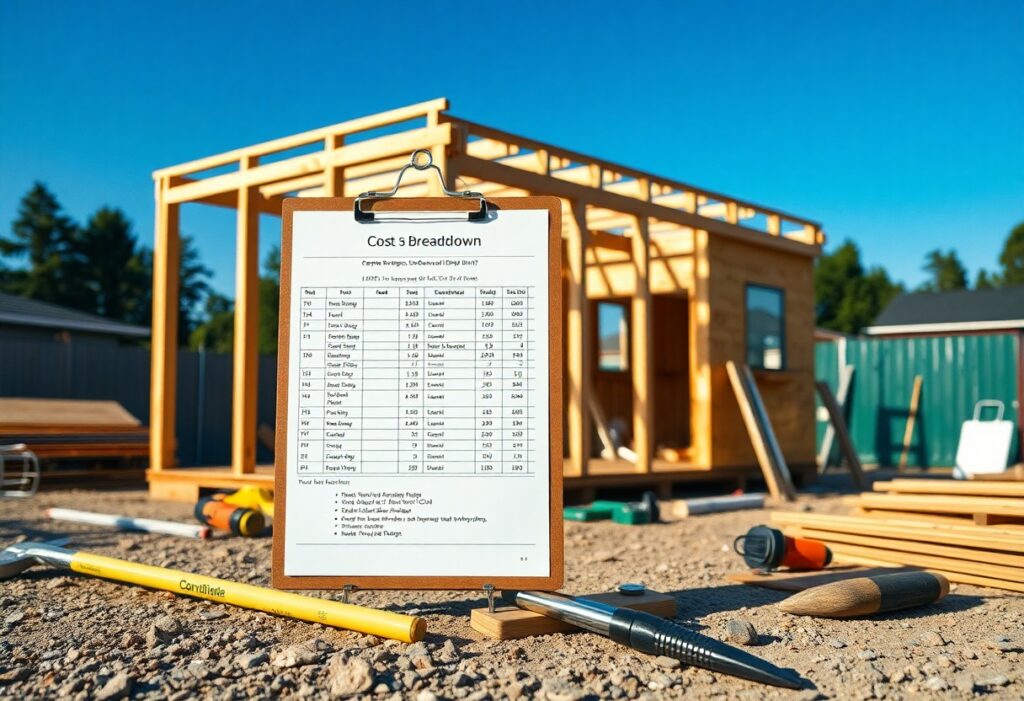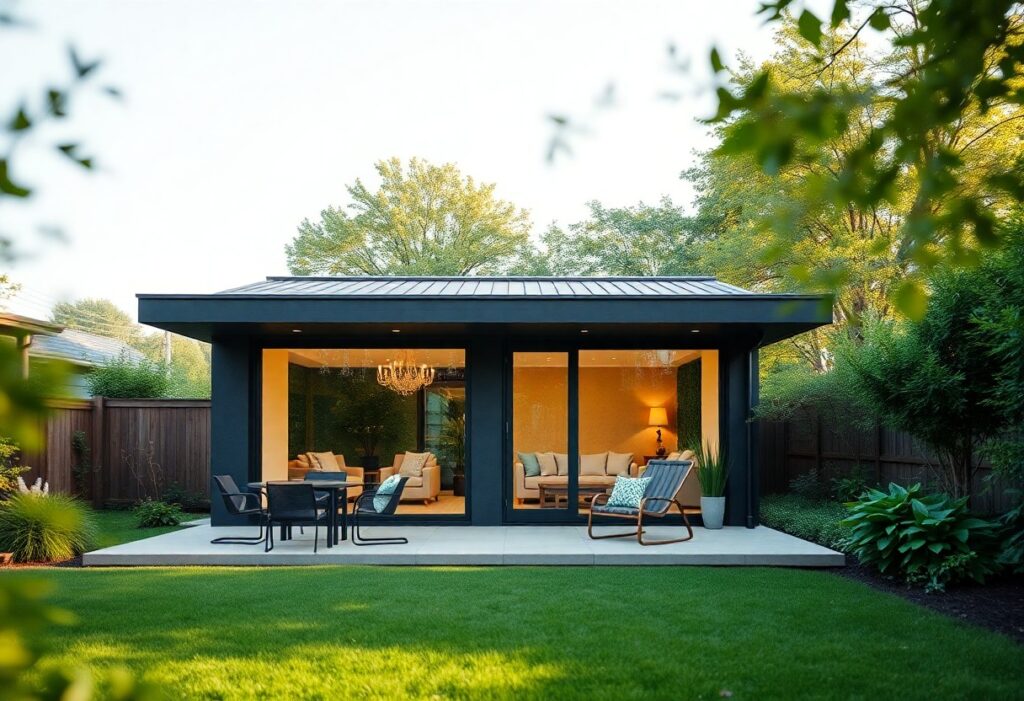With the passage of Bill AB1033, you now have the chance to explore the new possibilities surrounding Accessory Dwelling Units (ADUs) sold separately from the primary residence. This legislation not only expands your options in real estate but also presents a positive shift towards increasing housing availability. Understanding the details of this bill is vital, as it can empower you to make informed decisions that could significantly impact your property value and investment potential. Dive in to uncover how this new law can unlock valuable opportunities for you and your community.
Key Takeaways:
- Accessory Dwelling Units (ADUs) can now be sold separately from the primary residence, enhancing property value and flexibility for homeowners.
- Bill AB1033 facilitates the creation of ADUs by streamlining regulations and encouraging more construction options.
- This legislation is designed to address housing shortages by creating additional, independent living spaces within existing properties.
- Homeowners can leverage this opportunity to generate extra income through rental arrangements for the separated ADUs.
- The bill also focuses on making financing and insurance for ADUs more accessible, easing potential financial barriers for property owners.

Overview of Bill AB1033
While California continues to face a housing crisis, Bill AB1033 aims to provide innovative solutions by allowing Accessory Dwelling Units (ADUs) to be sold separately from the primary residence. This legislative effort seeks to address affordability and increase the availability of housing options, especially for first-time homebuyers.
Purpose of the Bill
Between the escalating housing prices and the growing demand for diverse living solutions, this bill promotes the development of ADUs as standalone assets. By enabling the sale of ADUs independently, it offers homeowners greater financial flexibility and encourages the construction of more affordable housing units.
Key Provisions
To effectively implement its objectives, Bill AB1033 includes several key provisions that facilitate the separate sale of ADUs, addressing zoning regulations and ownership rights. This allows homeowners to diversify their real estate investments and provides potential buyers the chance to enter the housing market.
Also, the bill streamlines the approval process for ADU construction and clarifies ownership rights, making it easier for you to navigate through legalities. Additionally, it highlights the importance of existing zoning regulations to ensure compliance without overwhelming local jurisdictions. These measures not only promote affordable housing but also empower you to capitalize on your property’s potential, ultimately benefiting the broader community. Be aware of the potential risks related to market fluctuation as this development unfolds.
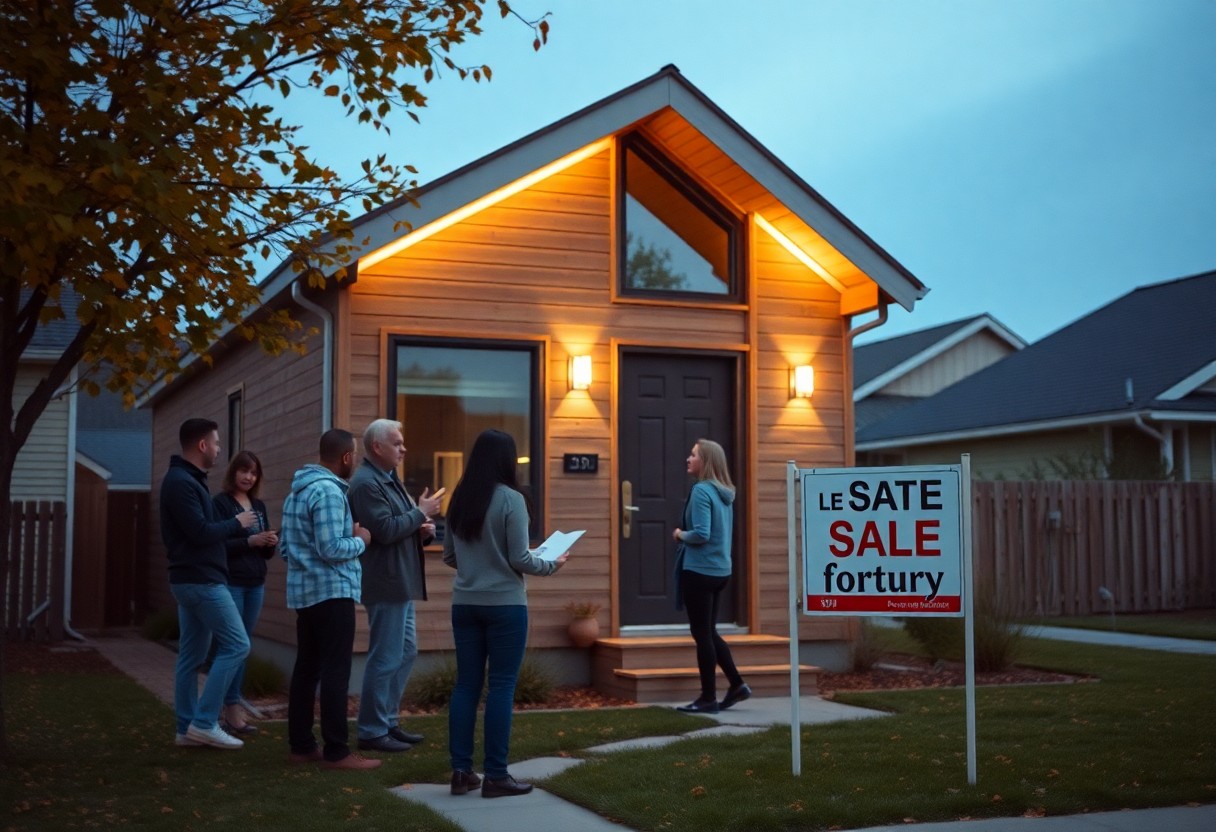
Implications of Selling ADUs Separately
Some potential implications of selling ADUs separately include increased housing availability and market flexibility. This new approach allows homeowners to capitalize on their properties while providing opportunities for prospective buyers seeking affordable living options. It can also stimulate local economies by fostering investment in residential real estate.
Housing Market Impact
Against the backdrop of a housing crisis, selling ADUs separately could lead to a more dynamic real estate market. By making these units available for independent purchase, it may decrease pressure on single-family homes, ultimately aiding in addressing housing shortages and fostering a more diverse market portfolio.
Financial Considerations for Homeowners
Market conditions will play a significant role in your financial outcomes when selling an ADU separately. Understanding the appraisal values, potential tax implications, and the overall housing market trends will be vital for maximizing your return on investment.
Considering the financial aspects of selling ADUs separately, you should weigh the potential for increased cash flow against the costs of maintenance and any zoning restrictions that may apply. The ability to generate income from your property can be beneficial, but it’s imperative to evaluate the long-term impact on your property’s value and how selling an ADU might affect your overall real estate strategy.
Legal and Zoning Considerations
Your understanding of legal and zoning considerations is pivotal when exploring the sale of Accessory Dwelling Units (ADUs) under Bill AB1033. You must navigate a complex landscape of local regulations, which can vary significantly between jurisdictions. Being informed about zoning laws, building codes, and permits is necessary to ensure compliance and maximize your opportunities in the ADU market.
Compliance with Local Regulations
Around the country, the specifics of local regulations can differ. As you consider selling ADUs separately, it’s important to consult your city or county’s guidelines. Compliance with zoning laws and obtaining the necessary permits will safeguard your investment and facilitate a smooth transaction.
Potential Legal Challenges
At times, legal challenges can arise when selling ADUs separately, often related to zoning disputes or non-compliance with local regulations. As policies evolve, disputes may arise, impacting your ability to market and sell these units effectively.
But be aware that potential legal challenges can significantly influence your experience with ADUs. Disputes over zoning classifications or building code violations may lead to costly delays or necessitate modifications to your property. Furthermore, staying abreast of changes in local laws can help you proactively address issues and establish a favorable position in the market, ensuring your investment retains maximum value while adhering to the law.
Benefits of Separately Sold ADUs
Once again, the introduction of separately sold ADUs presents significant advantages for California homeowners. You can explore how this policy increases housing options and enhances financial flexibility in your personal circumstances. For more insights, check out ADUs Can Now Be Sold Separately In California.
Increased Housing Supply
Before the enactment of Bill AB1033, many homeowners struggled with housing scarcity. You now have the opportunity to contribute to the local housing supply by selling ADUs separately, thereby addressing urgent housing needs in your community.
Financial Independence for Homeowners
For homeowners, the ability to sell ADUs separately opens up a new stream of income. This flexibility allows you to leverage your property as an asset, potentially lowering your mortgage costs or funding other personal projects.
It facilitates a path toward enhanced financial stability by generating passive income. With this additional cash flow, you can take control of your financial future, reducing dependence on traditional income sources. Embrace this opportunity to utilize your property wisely and unlock new potential while ensuring you remain financially empowered. This shift not only positively impacts your bottom line but also underscores the importance of maintaining a sustainable financial strategy.
Challenges and Concerns
Unlike traditional housing methods, the sale of Accessory Dwelling Units (ADUs) under Bill AB1033 brings a host of challenges that necessitate careful consideration. You may encounter issues related to zoning regulations, financing, and market demand, which may affect your ability to take full advantage of this opportunity. Additionally, the potential for conflicting local ordinances may complicate your property decisions and hinder the benefits that come with ADUs.
Neighborhood Impact
Neighborhood dynamics play a significant role when introducing ADUs as separate sales. You must be aware that an influx of ADUs could alter the character of your community, causing increased density and changing local demographics. Such changes might affect your property values and the quality of life, necessitating a proactive approach to maintain harmony in your surroundings.
Potential for Abuse
Among the notable concerns regarding the separate sale of ADUs is the potential for abuse in property management. You could face situations where owners might exploit loopholes, leading to improper rentals or inadequate maintenance. This misuse could adversely affect both the aesthetic and social fabric of your community.
Challenges regarding the potential for abuse in ADUs sold separately can pose significant risks. Inadequate regulations might allow for poor management practices, where property owners neglect responsibilities like maintenance and tenant screening. This could lead to an influx of undesirable rentals, diminishing your neighborhood’s appeal. Furthermore, financial exploitation may occur if investors prioritize profit over community respect. As a homeowner, staying informed and partaking in local regulatory discussions will be key to addressing these threats effectively.
Case Studies and Examples
All across the state, various cities have begun adopting the provisions of Bill AB1033, leading to exciting new trends in Accessory Dwelling Units (ADUs). Here are some compelling case studies that highlight these changes:
- Los Angeles: 300+ ADUs sold separately in 2022, boosting property values by 20%.
- San Francisco: Increased ADU construction by 150% since AB1033 implementation, providing crucial housing.
- San Diego: 60% of newly constructed ADUs are sold separately, enhancing affordability for buyers.
Successful Implementations
After the implementation of AB1033, many municipalities have paved the way for innovative housing solutions. For instance, in Los Angeles, the streamlined approval process has fostered the creation of over 300 ADUs, showcasing your ability to access new housing opportunities swiftly. This approach significantly raised local property values and provided much-needed housing diversity.
Lessons Learned
Studies reveal that adopting AB1033 can lead to remarkable outcomes when executed correctly. Understanding the importance of a comprehensive local plan is key. Communities that communicated effectively with homeowners and potential buyers generally saw higher success rates. The most notable insights include the need for local awareness, increased public engagement, and clear guidelines to successfully navigate this complex landscape, ensuring that ADUs serve as viable and sustainable housing solutions.
Understanding your context is crucial when implementing changes brought by AB1033. Familiarizing yourself with local regulations and potential buyer concerns can enhance the success of ADUs sold separately. By engaging your community early, addressing their concerns, and providing clear information, you can help alleviate fears regarding property values and neighborhood character, ultimately creating a more informed and supportive environment.
Summing up
Upon reflecting on the potential of Bill AB1033, you can appreciate how understanding the regulations surrounding Accessory Dwelling Units (ADUs) sold separately can unlock new opportunities for property investment and development. This legislation allows you to maximize your property’s value and increase housing availability in your community. By familiarizing yourself with these guidelines, you can navigate the complexities of ADU transactions more effectively, empowering you to make informed decisions that benefit both your financial interests and your neighborhood.
FAQ
Q: What are Accessory Dwelling Units (ADUs) and how do they relate to Bill AB1033?
A: Accessory Dwelling Units (ADUs) are secondary housing units located on the same lot as a primary residence. Bill AB1033 facilitates the sale of ADUs separately from the primary property, allowing homeowners more flexibility in real estate transactions and potential income opportunities.
Q: How does Bill AB1033 change the current regulations surrounding ADUs?
A: Prior to Bill AB1033, ADUs were typically tied to the sale of the primary residence. With the new legislation, homeowners can now sell their ADUs independently. This change aims to generate additional revenue for homeowners and increase the availability of affordable housing options.
Q: What are the potential benefits for homeowners under Bill AB1033?
A: Homeowners can benefit from Bill AB1033 by gaining the opportunity to monetize their property more effectively. Selling ADUs separately can provide a significant financial boost, allowing for investment in other projects, renovations, or even retirement funds. It can also enhance property values in some cases.
Q: Are there specific requirements that must be met in order to sell an ADU separately?
A: Yes, there are certain requirements that need to be fulfilled according to local zoning laws and regulations. Homeowners must ensure that their ADUs meet safety and building codes, as well as any applicable restrictions that might affect the sale. It is advisable to consult with local authorities or a real estate professional for detailed criteria.
Q: What impact could Bill AB1033 have on the real estate market?
A: Bill AB1033 has the potential to increase the overall supply of available housing in the market, particularly in urban areas where space is limited. By enabling separate sales of ADUs, it encourages more homeowners to consider adding these units to their properties, ultimately aiding in alleviating housing shortages and fostering economic growth within communities.


